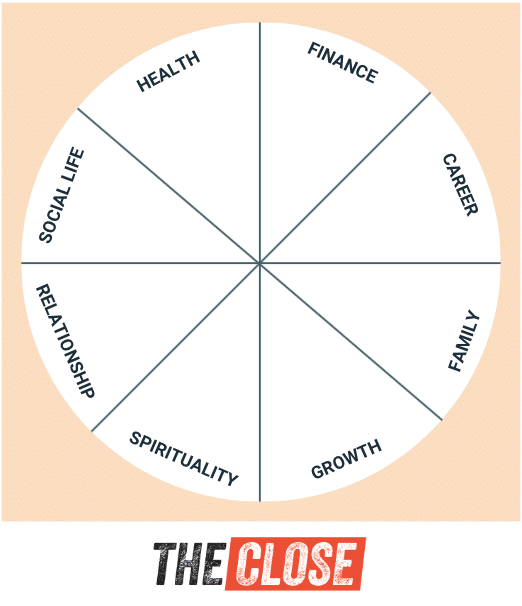In recent years, the real estate market has constantly changed. Agents are frantically trying to keep up with interest rate hikes, price changes, and dwindling listings. The race to stay ahead is real, and your challenge as a real estate professional is to learn how to adapt. I’m sharing 11 tips from my years of sales and coaching on how real estate agents grow their businesses. We’ll dive into actionable tips, resources, and insights to help you thrive in this ever-changing industry. Let’s get started.
1. Showcase Your Market Expertise

When looking at how to grow your real estate business, people need to know they can trust your expertise. Consider creating a detailed neighborhood guide with information like local amenities, schools in the area, walk score, and local history. Focus on your neighborhood or another that you know exceptionally well. You could even preview some vacant listings to have a solid feel of the homes in that area.
I spoke with one agent who remarked that she had met another mother at a PTA meeting who mentioned selling her home. The agent said she offered to discuss the opportunity but has not heard back. The house was listed a month later, and the agent was hurt. I asked what she offered to her potential client after that initial discussion—her face fell when she noted that she hadn’t followed up.
It’s your job as an agent to elevate those conversations—they don’t come up often. When a hot lead falls in your lap, it’s your cue to demonstrate your understanding of the market and the area. You can back up your expertise by regularly publishing a newsletter or email to a local neighborhood. Remember: Keep it local and targeted. Need more help on how to showcase your expertise in an area? Check out our guide on Real Estate Farming: How to Become the Go-to Agent in Your Neighborhood in 2024.
Want more designs to educate your clients and showcase your market knowledge? Check out Coffee & Contracts.
2. Focus Your Lead Generation Efforts
The answer is leads if you’re looking for how to grow a real estate business fast. However, if there’s one thing I’ve seen as a coach, agents are especially prone to “shiny penny syndrome.” Every month, this agent tries a new lead generation strategy, jumping from one tool to the next without seeing the process bloom into a sale. Without being committed to a plan, you might actually harm your ability to see long-term progress.
The funny thing is, this is a double-edged sword. Agents should be able to pivot and adapt their strategies, but be careful. After all, a new tool can be a boon for your business, but it’s also very easy to get distracted by new software or ideas. Agents try something new, succumb to “shiny penny syndrome” for a few months, and then they’re out thousands of dollars and weeks (or months) down the drain.
If you consistently focus on just a couple of real estate lead generation strategies, you will see a sale after six months. I suggest focusing on two to three, like these:
- Prospecting your sphere once a week
- Hosting three open houses per month
- Farm a neighborhood every month
If you want to go the digital route, trying out a paid lead generation strategy (don’t forget consistent follow-up), and working your niche could also pay off. What I’m saying is that there is no one-size-fits-all formula. Only you know yourself and your business. However, trying out a new lead generation strategy every other month is like throwing spaghetti at a wall. You won’t get any closer to making a meal and will be left with a mess.
3. Get Involved With a Support Network
It helps to meet with other entrepreneurs. Getting stuck in a rut can be easy as a real estate agent. You’ll need to make an effort to be involved with others—and not just other agents from your brokerage. Look into mastermind groups in your area. Perhaps join a Chamber of Commerce or local Rotary Club to meet like-minded people.

Your aim here is to learn from other entrepreneur’s experiences while socializing. You can also find professional referrals here: If you need an accountant, business planner, or insurance broker, it’s a good bet that you can find a highly recommended person. Plus, you may even garner a client. At the very least, joining a virtual group will help you find that camaraderie in the industry. If you’re struggling to find a good group, we’ve already picked out 9 Real Estate Mastermind Groups Every Agent Should Join Today.
4. Prioritize Your Client Experience
What is special about working with you? What do you provide that other agents don’t? Offering your clients “white glove” service will help you build those lasting relationships—and it’s the key to boosting real estate sales through referrals. Ask yourself: How is my service top-notch? What can I offer that other agents don’t?
Take time to reach out to your clients. According to the National Association of Realtors (NAR), 73% of sellers noted they would use their agent again. One of the easiest ways to keep your sellers satisfied is communication. Have a scheduled weekly call where you let them know how many showings were completed and if you received feedback from other agents.
Remember that referrals and repeat clients are the number one way to generate business after a few years. From that same study, 36% of clients said they found their agent via referral, and 27% had worked with their agent previously.
Need help building up your referrals? Birdeye can help you build a campaign to make responding to your review requests as easy as possible for your clients.
5. Organic Growth & Building a Team
You don’t need to start with a team regarding how to grow a real estate business. In fact, it’s recommended that you don’t bring on team members until absolutely necessary. In speaking with Eric Pearson from Pearson Smith Realty, he grew from 15 to 700 agents by focusing on one thing: lead generation. In Eric’s first year, he did about 10 transactions. Once he invested in his lead generation, he reached 72 transactions the next year. Once the business grew to the point that Eric was overwhelmed, he reached out to another agent in the office and asked if they would be willing to help.
In other words, organic growth will get you where you want to go. But you need to define where you want to go. Eric Pearson knew he wanted to be a managing broker and had his sights set on that goal. Pearson Smith Realty grew from 15 to 700 agents, but with organic growth first. Sometimes, a brokerage will push you to start a team before you’re ready.

However, you need to know yourself first. If you’re looking for a tool to get started on building a real estate team, I’d recommend using a solution that sets up your agents for success by bringing in leads for them and starting with an inside sales agent (ISA) format. You could look into a comprehensive solution like CINC, which has a top-rated team that puts together ads and runs them for you while you bring in leads and distribute them to your team.
📌 Pro Tip
I have met plenty of agents who are more than happy to be superstars doing 50-plus transactions a year. They love helping their clients and being busy. I’ve met agents who are team members and extremely successful at over $200,000 annual gross commission income (GCI), and they love the team camaraderie. They wouldn’t dream of leaving just to strike out on their own. You’ll need to find that balance of what works for you—whether that looks like a solo agent, a team member, a team leader, or a managing broker.
6. Create a Supportive Culture
A supportive culture is a pillar of how to grow your real estate business. When you look into brokerages, the culture should be one of your biggest considerations. Especially in an age of virtual real estate brokerages, there’s a feeling of isolation. A supportive community of like-minded real estate agents can help you brainstorm ideas and solutions for problems you might face. Here are some suggestions on where to find a group:
- Private Facebook mastermind groups
- Meetup.com
- Founders Club
- Your local Realtor association
- Chamber of Commerce
When I joined a small virtual brokerage, I struggled to find a sense of community and ended up at my local real estate board’s weekly “New Listings” meeting. It was great to see the same agents, and they would ask how my deals were going. It’s nice to talk shop with other agents. After all, you can only tell your friends and family you’re a real estate agent so many times!
7. Building Strategic Partnerships
Referrals don’t just come from clients—they often come from your relationships in the real estate industry. Get to know your preferred lenders, title reps, inspectors, and insurance brokers. These partnerships can help extend your opportunity and your reach. Plus, working with your partners on co-branded client appreciation events can create opportunities for both of you. You can share the cost (plus the leads!).
Plus, a great thing about having a network is being able to lean on those relationships for your clients. If you don’t have a good electrician in your network, chances are there’s someone you know who can refer a contractor they know, like, and trust. This network will grow over time. If you work with an amazing title rep, note that in your customer relationship manager (CRM), connect with them on social media and find ways to recognize them for a job well done. This also ties into prioritizing your client experience.
8. Effective Time Management
Working for yourself is a great boon for many agents—it’s why many of us went into the field. The flexibility and control over your work hours and productivity is freeing, but can also be an anchor. It requires hustle, grit, and determination to keep going in the real estate industry. And even then, you can often lose your motivation as a realtor. Yes, you work for yourself, but that doesn’t mean you only work when you have a client! Ask yourself, what does a sketched-out schedule look like?
I have a client who blocks out her entire day on Monday to follow up with feedback from showings on the weekend, negotiate deals, and send out her weekly emails for prospecting. She also blocks out half an hour every morning to check email and an hour for lunch each day. You can also see four hours blocked out, two each on Wednesday and Friday that she uses to prospect, and time on Thursday afternoon to prepare for her open house on Saturday.

While this is just one instance of planning your week, I highly recommend it. You will be able to hold yourself accountable and also see where you can fill in the gaps. We’ve all frittered away an afternoon on social media, tweaking and scheduling graphics to make things perfect. Now, you’ve promised yourself which tasks to work on, and you can hold yourself to that promise.
📌 Pro Tip
Have you heard of the Pomodoro technique? For those who struggle with focus, setting a time to break your work into intervals to achieve tasks can be revolutionary. Check out Pomofocus, a free online tool and app to increase productivity.
9. Financial Planning: Focus on How to Grow Your Real Estate Business
Financial planning is much more important for agents than a regular salaried employee. Remember, you’re running your own business. You’ll need to ensure you’re setting aside money for taxes and money to reinvest into your business. Ask yourself: What’s my goal for this year? Once you have your goal, you can work backward to determine how many homes you need to sell to reach that annual gross commission income (AGCI).

If your goal is to reach $100,000 in AGCI, let’s break that down. Let’s assume the average price point of your home sales is $500,000. When making calculations, you can assume an average of 3% commission. If you have a standard big box brokerage 70/30 split, you’re looking at $12,000. You’d need to sell roughly nine homes to get to your goal (and that’s before taxes).
You’ll also need to balance your financial growth with why you entered real estate. Every agent is different. What is your goal? More GCI? Starting a team? Setting aside time with your family? As a resource, we’ve created the image above as an easy and free download based on the “Wheel of Life.” This resource is an excellent way to holistically evaluate your current situation to see where you can focus your energy. Download the image above and fill in each segment with a number (one through nine) to know where you’re putting your energy and where you can refocus your energy in different areas of your life.
And, of course, if you’re looking to supercharge your leads to grow your business, you could check out zBuyer for on-demand leads generated from a cash offer advertisement.
10. Lean Into Coaching
If you’ve hit a wall, brainstorming with someone who knows the industry can help you identify what to work on and why. Coaching can unlock your potential to maximize your growth. And when you find the right coach, the return on investment is almost always worth it. It’s a mentor to help guide you through what you don’t see that could be the missing element of your business.
We’ve done a breakdown of pricing and offerings of popular real estate coaches for you already. Think about it: all of the best real estate agents have coaches. A great coach’s objective feedback, accountability, and expertise are priceless. Plus, many coaches have a 90-day program to get you producing. If you’re looking to supercharge, a coach can very well be exactly how to grow a real estate business fast.
If you’re looking for a tech-forward solution, try out Summit AI. It was recommended to me by one of our readers, and I’ve been using it for about a month to track my goals for 2024. It works remarkably well, and it’s free. You can download the app for iOS here.
11. Diversify Your Offerings
In lean times, agents must be able to pivot and adapt their business. I’ve turned rentals in lean months, and I’ve seen agents pivot to becoming mortgage brokers as well. In fact, we’ve done an entire article on real estate side hustles. There are innovative ways to uncover paths and opportunities you may not have considered. Try drilling down into a profitable niche in real estate, like vacation rentals or probate sales.
Another creative solution I’ve seen agents try is to offer your potential clients a “menu of services.” For example, for a 5.5% listing fee, they will offer standard services, like professional photography, listing the home on the MLS, and sending out mailers to the neighborhood. For 6%, they’ll help you purchase moving boxes and arrange and pay for your moving services. For 6.5%, they’ll pay for staging the property and provide a drone video. This strategy allows potential sellers to feel in control while offering the white-glove, 5-star service we mentioned above.
One to Avoid: Inaction
One thing to caution our readers on—while reading and educating yourself on the “how” is fantastic, nothing can take the place of actually acting on your intentions. After all, an object in motion stays in motion. Start with time-blocking a few activities—once you have that sense of accomplishment, let it drive you forward.
Agents are also victims of having blinders on when serving a current client. Your clients should always come first but don’t neglect your business just because you have a buyer. Be able to adapt your schedule, continue to prospect for leads, and don’t forget to nurture your relationships.
Bringing It All Together
In this market, showcasing your expertise is the foundation. However, that’s not where the journey ends. It’s that dance between lead generation, the power of your support network, and the actions you take that propel you forward. I’ll leave you with this quote from Dale Carnegie, author and public speaker: “Action breeds confidence and courage. If you want to conquer fear, do not sit at home and think about it. Go out and get busy.”
Is there a tip we may have missed or a secret you’re willing to share? Let us know in the comment section!










Add comment